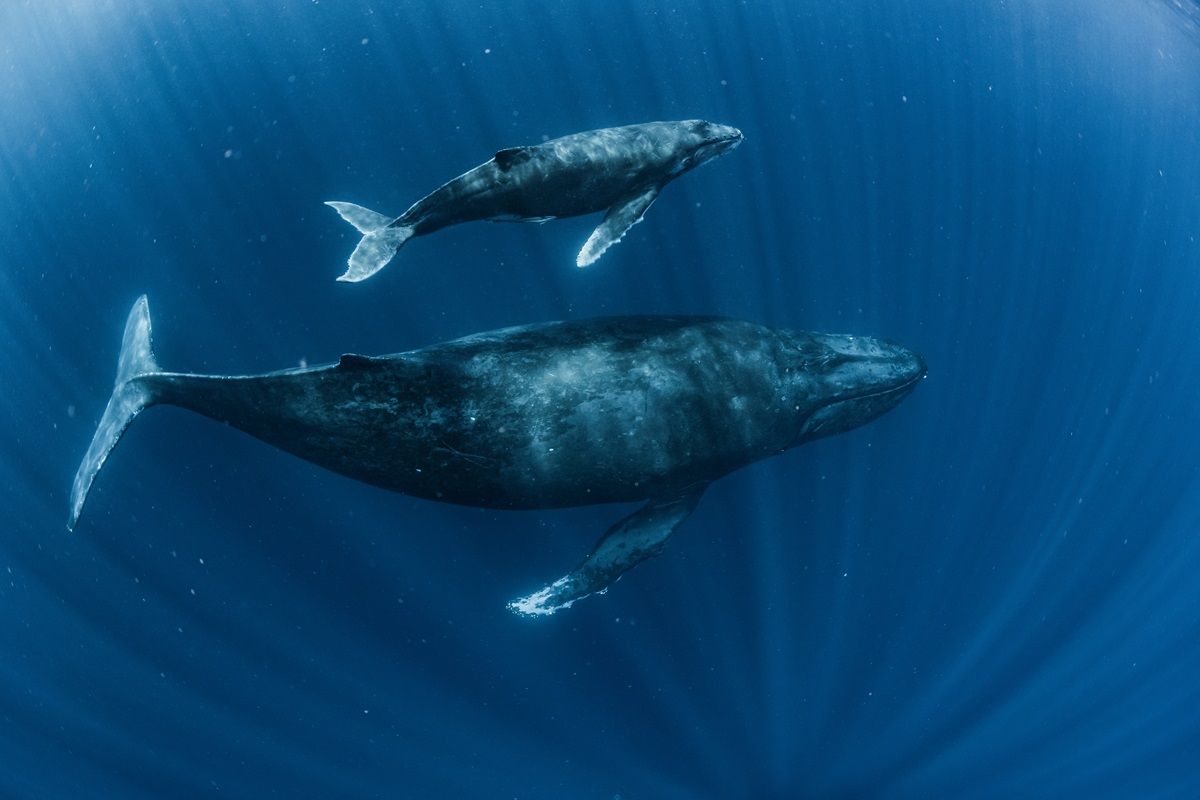
A humpback whale and its offspring (Image by Adobe Stock)
Baleen whales have a peaceful way of life. They are a group of whale species that feed simply by scooping up plankton from the water, using a special filter system in their mouths. But, they have a problem. Their primary natural predator is the fearsome orca, which lurks everywhere in the world’s oceans. Although they are actually a large species of dolphin, orcas are known as ‘killer whales’.
A core feature of the baleen whales’ lifestyle is the complex, hauntingly beautiful, and thunderously loud songs they use to communicate over the vast distances of the oceans. They use their songs to attract mates, share the location of food, find each other, and mark their territories. The problem is that their songs might have eavesdroppers; hungry killer whales could hear them, too.
Researchers have found that baleen whale species have two sorts of strategies for dealing with killer whales when they come hunting. Some species, like humpbacks and gray whales, fight back, relying on their maneuverable swimming and group cooperation to defeat their foe. Other species—those capable of fast swimming in the open ocean—flee from attack.
In twenty twenty five, an American researcher reported that the second group has another part to their strategy. They hide their songs from killer whales. The researcher determined the range of sound frequencies that killer whales can hear using data from other experiments conducted at aquariums. Then he compared it with data about sound frequencies of different baleen whale species songs. It turns out that the species that flee also sing at sound frequencies so low that killer whales can’t hear them
A special thanks goes to Dr. Heather M. Hill, Professor of Psychology, Saint Mary’s University, San Antonio, Texas, for reviewing this episode!
Learn more
- Did Whales Learn To Avoid Whalers?
- The Spade-toothed Beaked Whale
- Beluga whales: They're just like us!
Further Reading
- Some species of baleen whales avoid attracting killer whales by singing too low to be heard, ScienceDaily.com
- Whales have developed an impressive strategy to evade predators, earth.com
- Ghostly flight species of baleen whales avoid attracting killer whales by singing too low to be heard, University of Washington School of Aquatic and Fishery Sciences
- Some baleen whales sing at low frequencies to avoid killer whale attacks, Discover
- Branch, T. A. 2025 Most “flight” baleen whale species are acoustically cryptic to killer whales, unlike “fight” species. Marine Mammal Science, DOI: 10.1111/mms.13228









